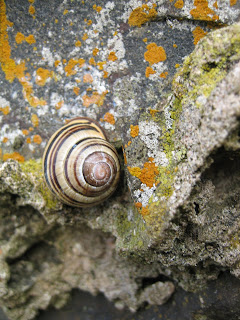Two attitudes towards extinction

With this in mind, compare and contrast these two quotes:
"But biodiversity losses of small inedible species often provoke the response, "Who cares? Do you really care less for humans than for some lousy useless little fish or weed, like the snail darter or Furbish lousewort?" This response misses the point that the entire natural world is made up of wild species providing us for free with services that can be very expensive, and in many cases impossible, for us to supply ourselves. Elimination of lots of lousy little species regularly causes big harmful consequences for humans, just as does randomly knocking out many of the lousy little rivets holding together an airplane."
- Jared Diamond, Collapse: How societies choose to fail or succeed, 488-89.
"The sadness which overcomes us when we hear about the extinction of hundreds of kinds of butterflies on a faraway continent has nothing to do with a loss of something useful. It doesn't even have anything to do with a reduction of aesthetic pleasure, since, more than likely, we would never have had a chance to see this type of butterfly. Nevertheless, we are poorer through its disappearance, since our own being is fulfilled in reference to every reality which we ourselves are not. Delectatio in felicitate alterius [delight in the happiness of others] - this formula of Leibniz overcomes the opposition between anthropocentrism and love of nature "for its own sake". To love something for its own sake is the specific form of human realisation.
- Robert Spaemann, Happiness and Benevolence, 118.
How do they each make you feel? Which strikes closer to home for you? Why?In both cases, the author makes use of a narrative of loss, but where Diamond fears for our survival, Spaemann speaks of us losing part of our identity. Spaemann is convinced that survival (whether individual, societal or as a species) is not a particularly important goal. For him, there are more important things; I might save my life and yet lose my self.







5 comments:
Both bring to light how all life is interconnected. i think have the most tension with Spaemann's idea of the aesthetics as merely visual. I would contend that we may be saddened by the death of butterflies (or anything else in creation) because of the loss of some beauty, potential or otherwise.
Spaemann's point is, for me at least, the more powerful and subtle one. But perhaps because of this, I think less people would agree with it than with the Diamond one.
On a tangential point, "we're to blame":
Isn't much of the political to and fro-ing over these issues a taking issue with the 'we' in this statement? 'We' won't take steps, until some other 'we' does first. Who the 'we' is, and where it stops is something, it seems to me, few people agree on.
I think both are important. The eco-theologian in me wants to side with Diamond though. We are definitely an arrogant species who measures everything in relation to our selves. So it does not surprise me that we would only register that which directly and overtly hurts our species. But even that is an insular statement - how bourgeois. The problem is that those most directly effected by the loss of biodiversity (and this goes well beyond aesthetics) are not even recognized voices in the conversation. (Those with money and techology seem to think that they can cope with any loss, not so with the poorest of the poor - nor with what some call the new poor, that is the environment.)
Byron,
I liked this little lecture on the subject of society collapse: http://www.mefeedia.com/entry/tedtalks-why-societies-collapse-jared-diamond-2003/12054852
Hi Christopher, thanks for that link. It's quite a good 20 min summary of his book Collapse, though the book obviously fills out his historical and contemporary examples (and gives many more case studies of each).
PS Have we met? Are you one of the various Christopher's that I know?
Post a Comment